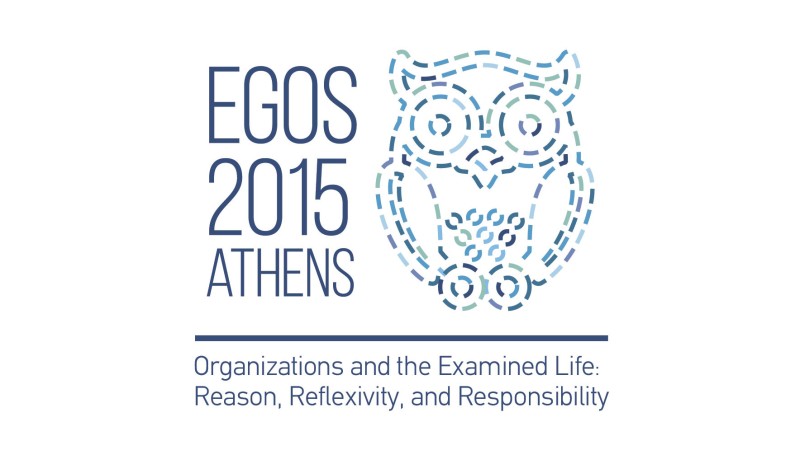Sub-theme 24: Critical Perspectives on Corporate Social Responsibility and Stakeholder Relations
Call for Papers
In management and organization studies there are increasing calls for more critical approaches to corporate social
responsibility (CSR) and stakeholder engagement (Banerjee, 2008; 2010; Fleming et al., 2013; Iivonen & Moisander, 2014;
Matten, 2009; Scherer et al., 2009; Greenwood, 2007; Jones & Fleming, 2003; Fleming & Jones, 2012; Mäkinen & Kourula,
2012). In this emerging stream of research, many of the core ideas and assumptions of CSR, as it is theorized and practiced
today, are being problematized. It is argued that for a number of structural and political reasons CSR programs and policies
do not necessarily achieve the desired social, environmental, and ethical outcomes (Edward & Willmott, 2008; Greenfield,
2004; Matten et al., 2003). As a response to these concerns, scholars have suggested that more analytical attention be focused
on the institutional forces and relations of power that underpin CSR.
The purpose of this sub-theme is to further
develop this emerging area of critical research by examining and theorizing the institutional and power dynamics of organization-stakeholder
relations and dialogues through which CSR is socially constructed, enacted, and practiced in the day-to-day of organizational
activity. In particular, the aim is to provoke critical discussion and debate on CSR as a business practice that
is embedded in particular institutional arrangements and relations of power that constitute the conditions of possibility
for agency and responsible conduct, for both organizations and their stakeholders. Moreover, the goal is to encourage critical
reflection of CSR as a field of scholarship (Crane & Matten, 2007) so as to explore whether or not and how it
might be possible to work towards new perspectives on CSR that "work for society and not just for corporations" (Banerjee,
2008: 73).
Theoretically, the goal is to advance knowledge in the field of CSR by encouraging contributions that
connect concepts and ideas from, amongst others, critical management studies, business ethics, and institutional perspectives,
to open up alternative perspectives and direct attention to new and critical questions about CSR and stakeholder relations.
We thus invite both conceptual and empirical papers that allow us to gain insights into the complexities of CSR
that are practically relevant and theoretically original. Possible topics include, but are not limited to:
- Institutional perspectives and studies of institutional work that highlight power relations and practices, e.g.: How are understandings of corporate responsibility co-constructed, negotiated, or disputed amongst organizational and other field-level actors in relation to particular issues? Through what rhetorical and other discursive strategies and tactics do organizational actors symbolically manage their legitimacy and relations with different stakeholders?
- Historical and genealogical analyses of the political processes and practices of power through which particular articulations of CSR and ideas about stakeholder relations and engagement have been discursively constructed, negotiated, translated, and transformed in contested issue fields. How have the discourses and practices of stakeholder management and CSR contributed towards maintaining and reinforcing asymmetrical, exploitative, imperialistic and/or neo-colonial power relations between corporations and their stakeholders?
- Discursive analyses of the ways in which particular notions of corporate responsibility, good corporate citizenship, and management ethics are constructed, contested, negotiated, and enacted in organization-stakeholder relationships.
- Ethnographic analyses that critically examine how business organizations engage with stakeholders in the day-to-day practice of their organizational and communicative activity. How do CSR discourses and practices enable and constrain ethical behavior at the individual and organizational level?
References
- Banerjee, S.B. (2008): "Corporate Social Responsibility: the good, the bad and the ugly." Critical Sociology, 34 (1), 51–79.
- Banerjee, S.B. (2010): "Governing the global corporation: a critical perspective." Business Ethics Quarterly, 20 (2), 265–74.
- Crane, A., & Matten, D. (2007): "Editor's introduction: Corporate Social Responsibility as a field of scholarship." In: A. Crane & D. Matten (eds.): Corporate Social Responsibility. Vol. 1: Theories and Concepts of Corporate Social Responsibility. London: SAGE Publications, pp. iii–xvi.
- Edward, P., & Willmott, H. (2008): "Corporate Citizenship: rise or demise of a myth?" Academy of Management Review, 33 (3), 771–73.
- Fleming, P., & Jones, M.T. (2012): The End of Corporate Social Responsibility: Crisis and Critique. London: SAGE Publications.
- Fleming, P., Roberts, J., & Garsten, C. (2013): "In search of corporate social responsibility: Introduction to special issue." Organization, 20 (3), 337–48.
- Greenfield, W.M. (2004): "In the name of corporate social responsibility." Business Horizons, 47 (1), 19–28.
- Greenwood, M. (2007): "Stakeholder engagement: beyond the myth of Corporate Responsibility." Journal of Business Ethics, 74 (4), 315–27.
- Iivonen, K., & Moisander, J. (2014): "Rhetorical construction of narcissistic CSR orientation." Journal of Business Ethics, Online first, http://link.springer.com/article/10.1007/s10551-014-2298-1
- Jones, M.T., & Fleming, P. (2003): "Unpacking complexity through critical stakeholder analysis: the case of globalization." Business & Society, 42 (4), 430–54.
- Mäkinen, J., & Kourula, A. (2012): "Pluralism in Political Corporate Social Responsibility." Business Ethics Quarterly, 22 (4), 649–78.
- Matten, D. (2009): "Review essay: 'It's the politics, stupid!' Reflections on the role of business in contemporary nonfiction." Business & Society, 48 (4) , 565–76.
- Matten, D., Crane, A., & Chapple, W. (2003): "Behind the mask: revealing the true face of corporate citizenship." Journal of Business Ethics, 45 (1), 109–20.
- Scherer, A.G., Palazzo, G., & Matten, D. (2009): "Introduction to the Special Issue: Globalization as a challenge for business responsibilities." Business Ethics Quarterly, 19 (3), 327–47.


